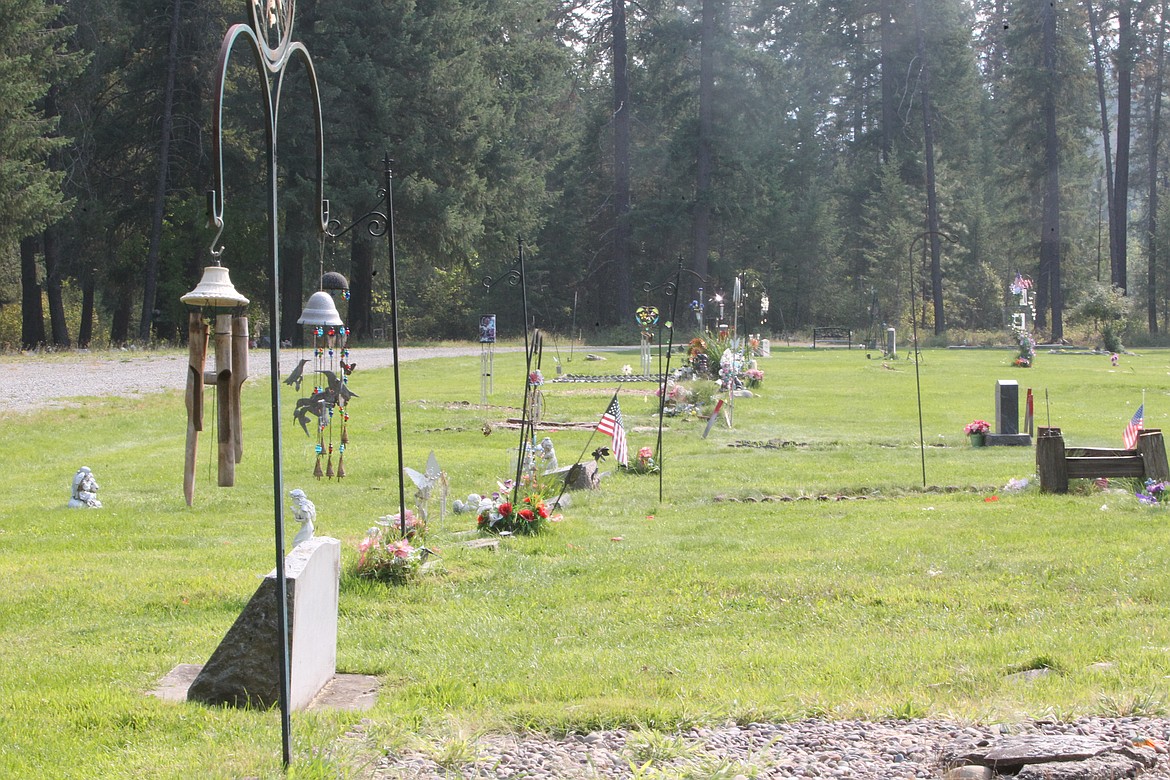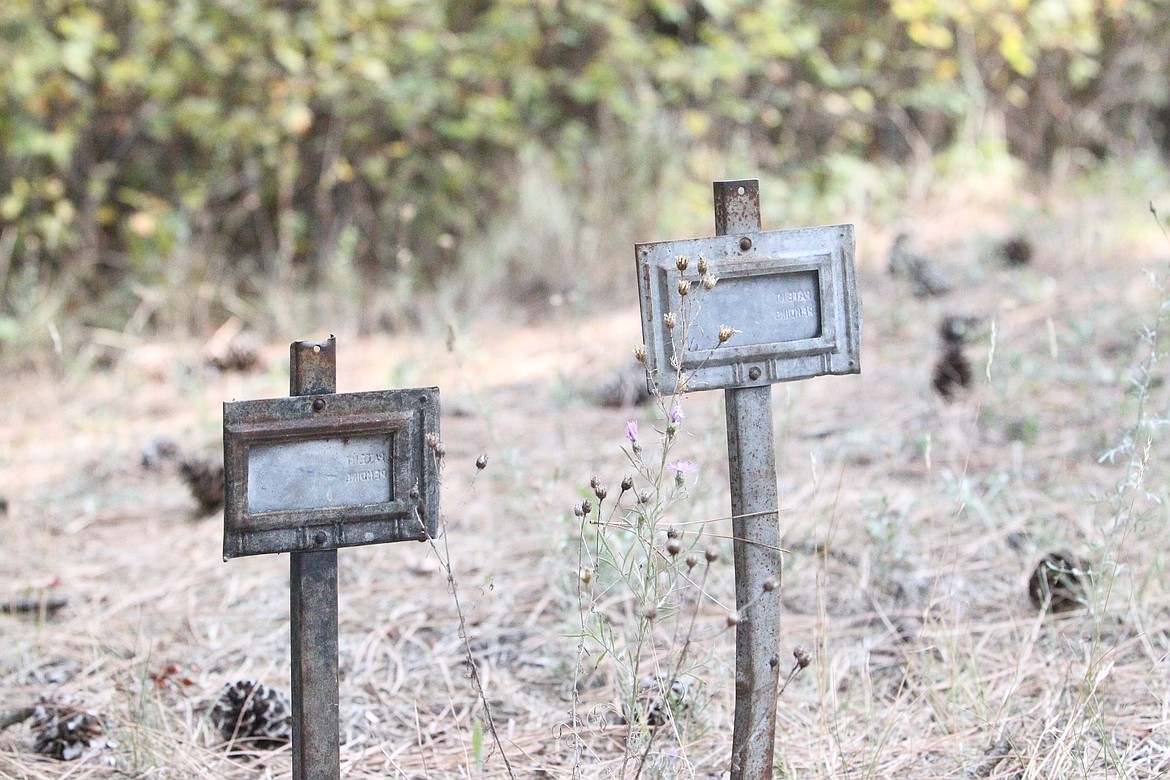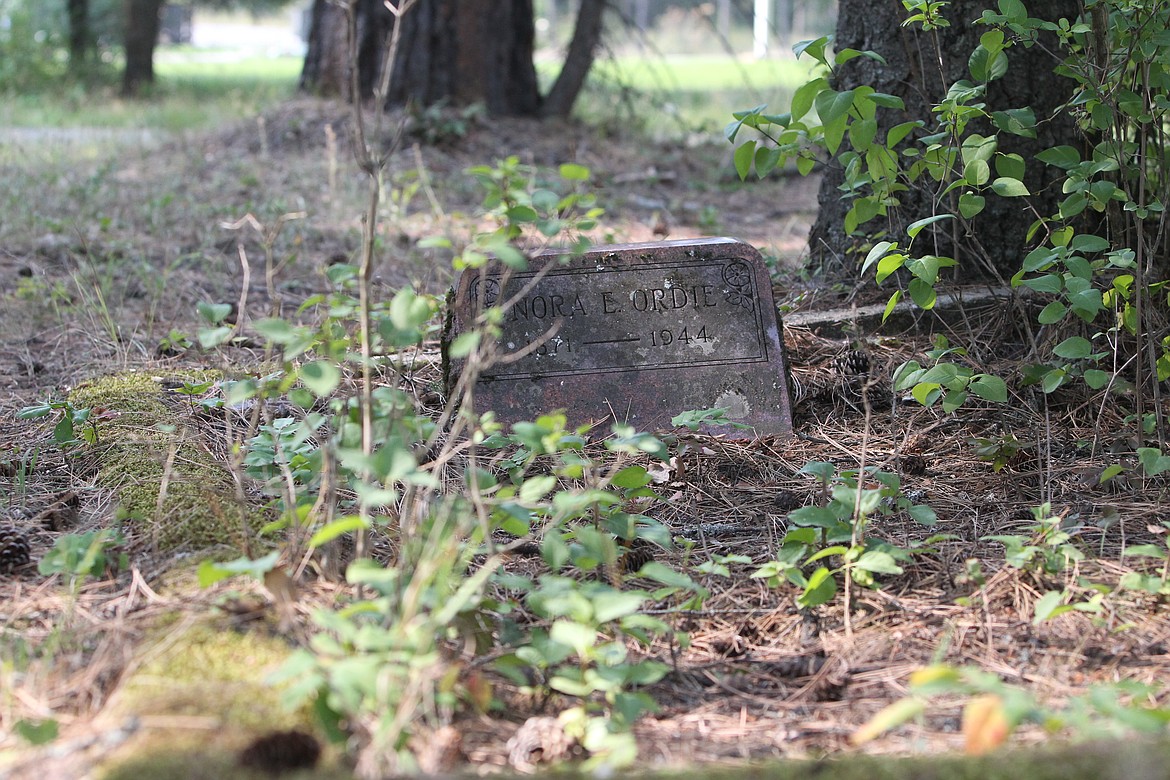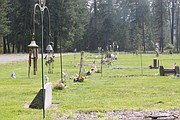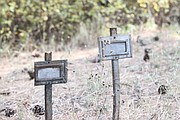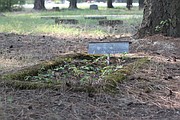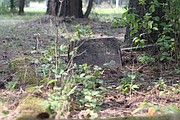'This is our heritage'
Walking among the graves of the legends and laypeople who helped build Troy, Mayor Dallas Carr says he feels a link with the city’s past he hasn’t been able to find anywhere else.
Below the pines shading the eastern section of Troy Cemetery, Carr pointed to the tombstones of the Callows, a family that ran one of the city’s first stores in the 1920s. Beneath the brush growing along a hillside, lie the unmarked graves of miners killed in the collapse of a local mine.
“This is history and we’re trying to keep it that way,” said Carr during a Sept. 9 tour of the cemetery.
In recent years, City Hall has worked to spruce up the burying grounds. Light logging and brush thinning have helped clear overgrown plots. A well that officials installed on the northern end of the site let the city build five upright spigots throughout the cemetery. In the western section of the grounds, workers put in a staging area for ceremonial services, complete with a flagpole, parking spots and an informational bulletin board.
Despite the progress, Carr said much work remains ahead. To oversee continued efforts, city councilors approved the creation of a cemetery committee earlier this year. This panel of residents will function as a springboard for ideas on how to revitalize the burial ground. After mulling over plans at committee meetings, members will present their suggestions to councilors for approval.
Looking ahead, Carr hoped the city would initiate an adopt-a-plot program. Since many of those buried at the cemetery no longer have living relatives in Troy, their graves have fallen into states of disrepair.
Some of the graves, especially in the cemetery’s older eastern section, are designated with markers that don’t include the interred person’s name. Others are covered with brush, or in at least one case, a tree that sprouted after the grave was dug. Carr himself recently found out his great-grandparents were buried in an overgrown plot in the cemetery. To add to the confusion, their tombs are clustered around the grave of an unrelated year-and-a-half old child.
Along with sprucing up the existing grounds, city officials are considering an expansion. Carr said workers might incorporate municipal property to the north of current burying grounds to free up more plots. Officials also are looking into putting in additional gravesites closer to U.S. Highway 2.
Carr said much of the work the city has done and is planning to do wouldn’t be possible without the help of private donors. The Troy United Methodist Church provided a generous donation, which allowed the city to put in the well and sprinkler system. The Troy Community Baptist Church offers a monthly donation for the upkeep of the cemetery.
“Without these two churches’ involvement, the Troy Cemetery would not be where it is today,” said Carr.
Looking after the cemetery has been at the top of Carr’s list since he took office. As a fresh-faced mayor, he saw residents raise their hackles over preserving the city’s heritage when companies tried to put in a gas station and or buy a street. The way Carr sees it, Troy will have to welcome new businesses to keep its job market afloat.
But the cemetery will remain a perennial sanctuary for the city’s small town spirit.
“This is our heritage; this is our forefathers,” Carr said, gesturing around the cemetery. “This is where you go if you want to respect them.”


